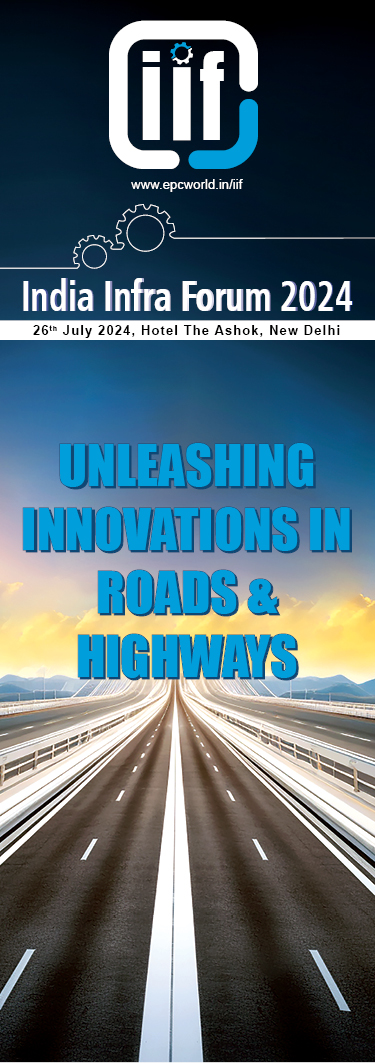by Shantanu Mallick, Chief Architect, Elan Group
In the dynamic landscape of Indian real estate, a notable shift towards sustainability is reshaping the industry's trajectory. The ascent of green construction isn't just a passing trend; it's a strategic manoeuvre to foster an ecologically responsible and resilient real estate sector. This paradigm shift encompasses a spectrum of sustainable practices, including the integration of eco-friendly building materials and energy-efficient designs.
Green construction gaining momentum
The Indian real estate sector is undergoing a profound transformation, fueled by an increasing demand for sustainable and energy-efficient structures. The Indian Green Building Council (IGBC) reports a remarkable 20% annual expansion in the green building footprint, signalling a substantial shift towards environmentally conscious construction practices. This growth is not only spurred by market demand but also by regulatory initiatives promoting green spaces.
Economic incentives for green construction
Beyond its environmental advantages, green construction brings substantial economic benefits. According to the World Green Building Council, adopting green practices can lead to a 7% reduction in operating costs, a 20% increase in asset value, and a 6% enhancement in return on investment. These financial incentives position sustainable practices as not just ethical but also lucrative, making green construction an attractive option for real estate developers.
Consumer awareness driving change
A key driver in the rise of green construction is the evolving consciousness of Indian consumers regarding environmental issues. A Nielsen survey reveals that 73% of Indian consumers are willing to pay a premium for sustainable products and services. This shift in consumer behaviour extends to the real estate sector, with homebuyers actively seeking eco-friendly features such as energy-efficient appliances, rainwater harvesting, and integrated green spaces within residential complexes.
Regulatory impetus
Government initiatives play a crucial role in shaping the trajectory of green construction in India. The introduction of certifications like Leadership in Energy and Environmental Design (LEED) and the implementation of the Energy Conservation Building Code (ECBC) have been instrumental in fostering sustainable practices. The ECBC mandates energy-efficient design and construction for commercial buildings, compelling developers to incorporate green building principles.
Corporate commitment to sustainability
Leading real estate developers in India are recognizing the strategic importance of sustainable practices. Beyond mere compliance, companies are aligning their business strategies with environmental responsibility to attract eco-conscious investors and tenants. In a pioneering move, some of India's largest real estate developers have committed to achieving carbon neutrality in all their projects by 2030, setting an inspiring precedent for the industry.
Showcasing success: Case Studies
Various renowned commercial development projects have implemented Green Building Principles in India. A prime example of this is the Infosys, Mysore Campus. Infosys is a pioneer in adopting green building principles across its campuses. The Mysore campus is a standout example, featuring energy-efficient infrastructure, water conservation systems, and sustainable landscaping. The campus has received prestigious green certifications, showcasing Infosys's commitment to environmentally responsible corporate development. Similarly, the Wipro Tech Park in Bangalore is renowned for its commitment to sustainability, and its Electronic City campus in Bangalore is a testament to this dedication. The campus incorporates energy-efficient technologies, waste management systems, and green building materials. It has achieved notable green certifications, showcasing Wipro's emphasis on creating environmentally responsible corporate spaces. Another example of sustainable green development is the ITC Green Centre in Gurgaon, which is a flagship commercial development that exemplifies green building practices. It incorporates advanced energy management systems, efficient water usage, and eco-friendly materials. The project has been awarded various green certifications, highlighting its contribution to sustainable corporate real estate in India.
On the residential front, the House of Hiranandani in Chennai is a well-known residential development that emphasises sustainability. The project integrates green spaces, energy-efficient appliances, and water conservation initiatives. The use of environmentally friendly materials and practices makes it a notable example of eco-conscious residential development. Furthermore, the Magicbricks Western Expressway Towers in Mumbai is yet another prime example of Residential Complexes with Eco-Friendly features. This residential complex in Mumbai is known for its sustainable design and eco-friendly features. It incorporates rainwater harvesting systems, energy-efficient lighting, and solar panels. The project focuses on minimising its environmental impact while providing residents with a comfortable and sustainable living space.
Challenges and opportunities
While the momentum towards green construction is promising, challenges persist. Initial costs associated with implementing sustainable technologies and materials remain a concern for many developers. However, the long-term benefits in terms of operational savings and marketability often outweigh these upfront expenses. Additionally, addressing the shortage of a skilled workforce trained in sustainable construction practices presents an opportunity for collaboration between government bodies, educational institutions, and industry stakeholders.
Future Horizons: Shaping a sustainable landscape
The rise of green construction in India's real estate industry underscores the sector's commitment to sustainable and responsible development. With a conducive regulatory environment, economic incentives, and a growing awareness among consumers, the shift towards eco-friendly construction practices is set to accelerate. As the industry continues to embrace green building principles, India is poised not only to meet its environmental goals but also to emerge as a global leader in sustainable real estate development. There has been substantial growth and potential of the green construction movement, shaping the future of the Indian construction landscape. The success stories of eco-friendly projects showcase that sustainability is not just an ethical choice but a pathway to long-term environmental conservation and economic prosperity. As the green revolution gains momentum, Indian real estate developers have a golden opportunity to integrate sustainable practices, meeting the rising demand for environmentally conscious real estate and contributing to a greener, more sustainable future.






